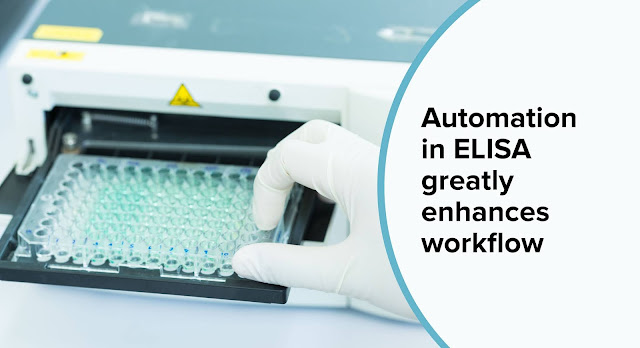Automation in ELISA greatly enhances workflow
In the wake of the increasing need to
conduct different assays for infectious disease and hormone panels, management
of multiple ELISA protocols manually, can be time-consuming. This is where
automation of ELISA protocols plays a role in ensuring reliability and
consistency in:
- Time and temperature of incubation
- Reproducibility of
washing process to avoid carry-over of sample and reagents
- Simultaneous and sequential dispensing through robotic probes
Besides this, most automated ELISA
processors are open systems, allowing flexibility and greater degree of accommodation
in expanding the test menu. Most importantly, automation helps in improving
workflow efficiency by freeing the laboratory staff from repetitive steps. In
fact, automation greatly improves the quality of data generated. It has been
noted that on a standardized and validated automated system, replicates on a
plate as well as across the plates, show lower co-efficient of variation (CV)
when compared to a manual system.
Choosing the right ELISA automation for your lab
In order to gain maximum from automation,
one should determine the scale and scope of automation, based on the lab
requirement and choose an instrument accordingly. Thoughtful planning and careful
implementation, based on test menu, workload and lab infrastructure, can
determine the overall success of automating the ELISA process.
Automation can be implemented on the
simplest assay format like an ELISA plate reader to a high capacity, modular
6-plate processors for multiple parameters. Transasia Bio-Medicals offers a
complete range of fully automated 2 ½ and six plate ELISA microprocessors for a
wide range of infectious diseases and hormone assays.




Comments
Post a Comment